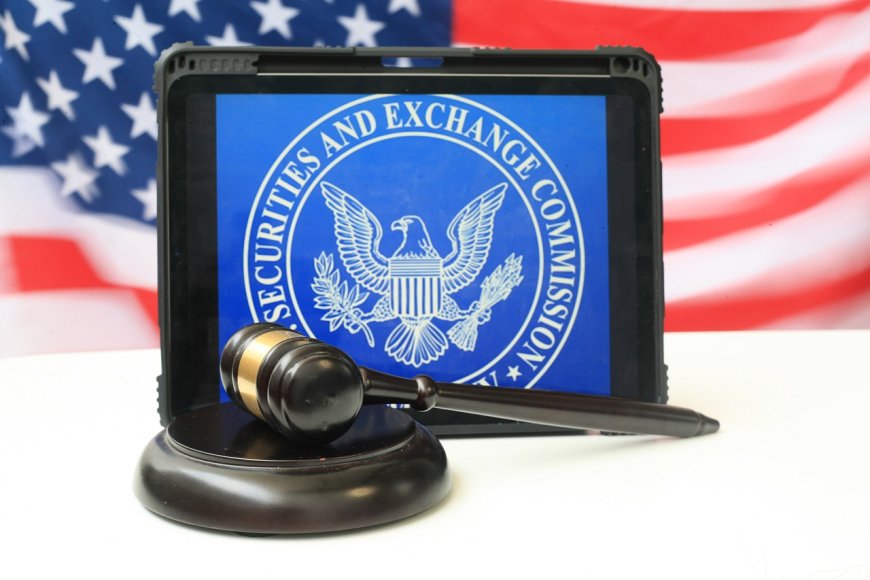Blockchain Association on Why SEC Chair Gensler ‘Must Recuse Himself From Digital Asset Enforcement Decisions’
The Blockchain Association is a prominent non-profit organization that champions the creation of a policy environment that fosters innovation in the digital asset economy.

Jake Chervinsky, Chief Policy Officer at Blockchain Association, has shared a series of insights expressing concerns about the impartiality of U.S. Securities and Exchange Commission (SEC) Chair Gary Gensler in relation to digital asset enforcement decisions. Chervinsky says that these concerns stem from Chair Gensler’s stance that all digital assets, except Bitcoin, are securities. According to Chervinsky, this viewpoint necessitates Gensler’s recusal from all enforcement decisions related to digital assets.
The Blockchain Association is a prominent non-profit organization that champions the creation of a policy environment that fosters innovation in the digital asset economy. Collaborating with its members, the Association strives to enlighten policymakers about the transformative potential of blockchain technology and its capacity to usher in a more secure, competitive, and consumer-centric digital marketplace. Their objective is to propel the future of cryptocurrency in the United States, endorsing the promise of blockchain technology and influencing policy to guarantee its triumph.
On 29 June 2023, Chervinsky posted a series of tweets that summarized the main ideas expressed in a paper titled “Chair Gensler Must Recuse Himself From Digital Asset Enforcement Decisions” that he co-authored with a colleague (Marisa Tashman Coppel, Senior Counsel at Blockchain Association).
The Wells Process and Impartiality
Chervinsky explains that every SEC enforcement action follows a procedure known as the “Wells process.” This process is designed to ensure fairness and impartiality in the enforcement of securities laws. The SEC Commissioners, including Chair Gensler, are expected to act as neutral arbiters, impartially weighing the evidence and arguments presented by SEC staff (the prosecutors) and the enforcement target (the defendant).
Gensler’s Stance on Digital Assets
However, Chervinsky argues that Gensler is far from a neutral arbiter regarding digital assets. Chervinsky says that since Gensler’s appointment, he has repeatedly stated his view that all digital assets, except Bitcoin, are securities. According to Chervinsky, this viewpoint demonstrates a prejudgment that necessitates Gensler’s recusal from all enforcement decisions related to digital assets.
The Importance of Careful Analysis
Chervinsky asserts that Gensler’s stance is incorrect. He explains that determining whether a particular transaction falls within the scope of the securities laws requires a careful analysis of the “facts and circumstances” surrounding that transaction. This is a nuanced process that considers each case’s specifics. Chervinsky argues that Gensler refuses to engage in this necessary analysis, instead making blanket statements about all digital assets.
The Legal Requirement for Recusal
Per Chervinsky’s Twitter thread, when an SEC Commissioner has prejudged the facts and law of a particular case before hearing it, the law demands recusal. Chervinsky believes that Gensler has clearly prejudged the facts and law in every case involving digital assets, and therefore, he must recuse himself.
The Impact of Bias on Enforcement Actions
Without recusal, Chervinsky warns that Gensler’s bias taints the entire enforcement action. He cites the law, which states that litigants are entitled to an impartial tribunal, and there is no way to quantitatively measure the influence of one upon the others. This means that Gensler’s bias could potentially influence the outcome of enforcement actions, undermining the fairness of the process.
The Need for Immediate Action
Chervinsky points out that Gensler has already voted on many enforcement actions involving digital assets. He believes that Gensler should have recused himself then, and since he didn’t, those enforcement actions should be invalidated now. Furthermore, he should be disqualified from voting on any more in the future.
Not Legal Advice, But a Call to Action
While Chervinsky clarifies that their paper is not and should not be considered legal advice, he suggests that anyone dealing with an SEC investigation or enforcement action may want to discuss this with their counsel. He outlines several ways to raise the issue of Gensler’s recusal with the SEC or a federal court.
Preserving Fairness and Impartiality
In conclusion, Chervinsky emphasizes the importance of preserving the fairness and impartiality of the SEC’s enforcement function. He hopes that their paper will contribute to the just and equitable administration of the securities laws.







